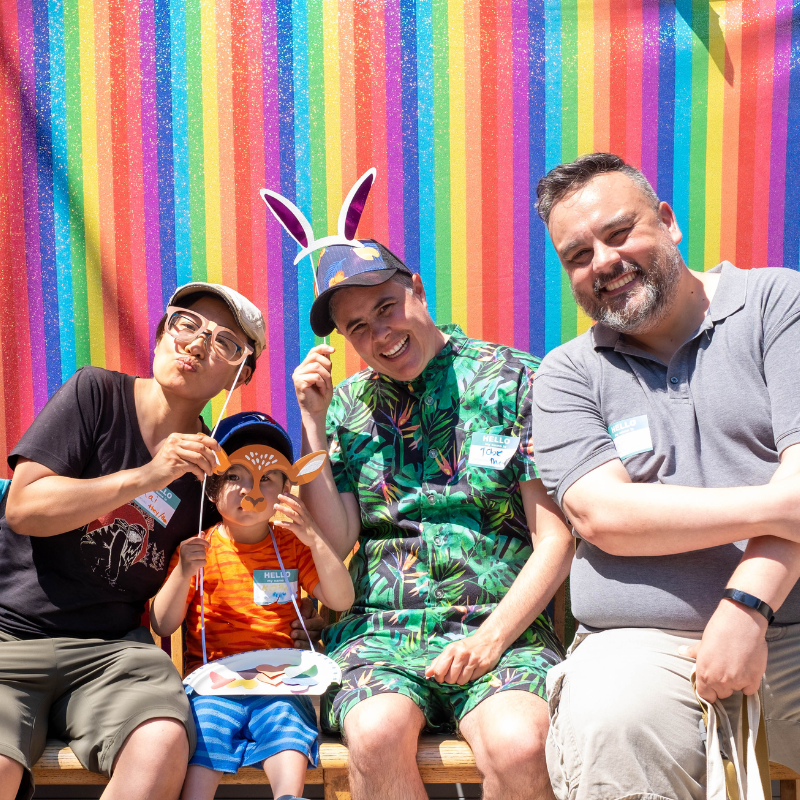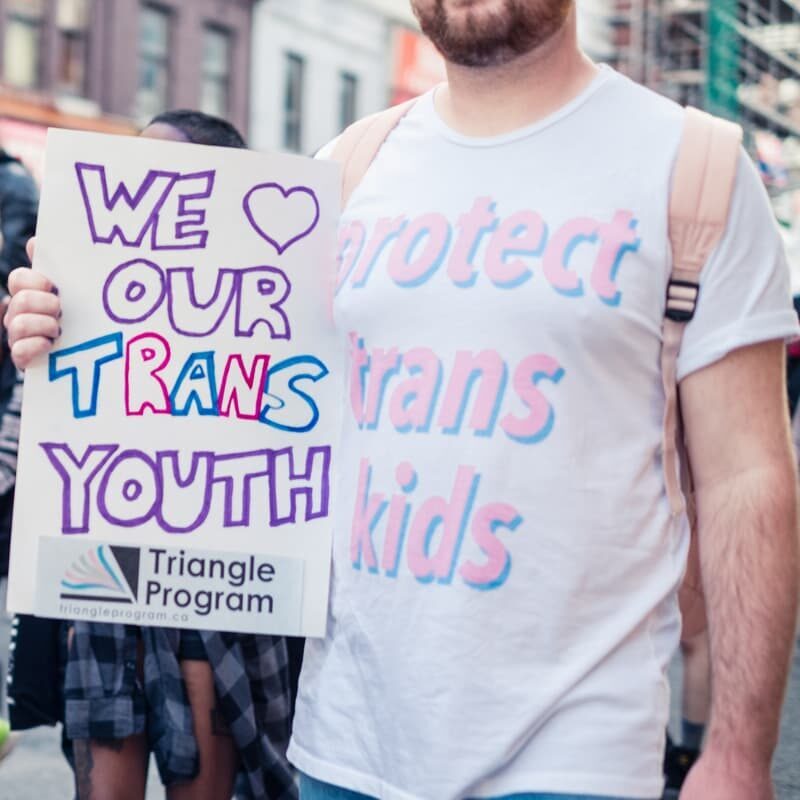Best practices for reporting on 2SLGBTQ+ families.

Introduction
There’s a huge diversity of family structures out there: from single parent households to multi-parent queer families, divorced families to intergenerational households—and everything in between.
There’s no one-size-fits-all language to describe families, parents, and loved ones. As mentioned elsewhere in this guide, it’s important to use the words and names that are accurate to whomever you’re reporting on.
That may mean asking:
- Are you comfortable with me identifying your family structure in this story? This is personal information, and like someone’s gender identity it’s not always appropriate to bring up.
- What’s the best language I could use to describe your family?
It also means asking yourself “why.” Why is it necessary to include descriptors of someone’s family? Does including these details give a fair voice to a family or does it serve to exclude and ‘other’ them?
Reflecting on these questions will help you to report in a way that’s true and representative of the people who have trusted you to share their story.
Ontario’s All Families Are Equal Act
In Ontario, the All Families Are Equal Act was passed in 2016. It enshrines in law that all parents in the province deserve equal rights, regardless of how they came to be parents or the composition of their family.
This includes same-gender parents and multi-parent families who aren’t biologically related to their children, including those who use sperm donors and other reproductive technologies.
The Act recognizes that the legitimacy of parenthood has nothing to do with how a baby was made or birthed. This same spirit should be carried into reporting on 2SLGBTQ+ families.

Reporting Do’s
Use expansive terms like family, parent, caregiver
Listen and reflect the language and names used by families themselves
Ask parents which pronouns to use when describing a baby or child
Reporting Dont’s
Use the term “nuclear family” or “mom and dad”
Ask how someone got pregnant or how they got their child
Question who the “real” parent is
As a General Rule
Every family is unique. A good guideline is to not ask trans and queer families questions you wouldn’t ask a straight cisgender couple. For instance, you wouldn’t ask who the parent is or how they made their baby, so don’t pose those questions to queer families, either.
Resources
There are no cards in the families and parenting category.
Still have questions? Connect with us.
Connect with us to ask a question, book a consultation or book a photography space.